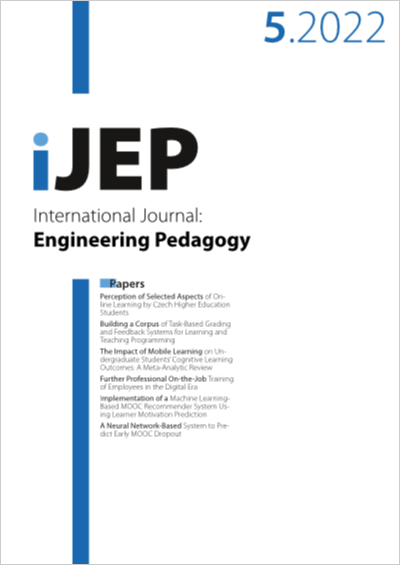The Impact of Mobile Learning on Undergraduate Students’ Cognitive Learning Outcomes: A Meta-Analytic Review
DOI:
https://doi.org/10.3991/ijep.v12i5.32821Keywords:
higher education, learning performance, ubiquitous learningAbstract
The objective of this research was to identify the overall effectiveness of mobile-based interventions on the learning performance of tertiary education students. Besides, the paper sought to contour common variables across eligible studies that might have favoured learning achievement. A meta-analysis of the impacts of ubiquitous learning interventions on academic outcomes over 12 years (2010–2021) was carried out, in which 12 experimental and quasi-experimental studies were analysed. A random-effects model yielded the overall standardised mean difference of .52 [.37 to .67] in favour of mobile learning environment, which is a moderate effect size. Common facilitators of achievement as distinguished by experimenters and participants were commendable multimedia design, diversified content, the opportunity for relevant interaction with teachers and peers, as well as flexibility and accessibility of learning activities due to handheld devices. These findings suggest the potential of mobile-assisted interventions in contributing to student educational outcomes. This study summarises the extant literature to some degree thus advancing the investigation into the effectiveness and expediency of mobile technologies in higher education.
Downloads
Published
How to Cite
Issue
Section
License
Copyright (c) 2022 Elmira Bazhenova, Arzigul Ismailovna Shuzhebayeva, Sarbinas Mukhamedyarovna Kuntuganova, Meruert Daulethanovna Bazhenova, Svetlana Ivanovna Murygina

This work is licensed under a Creative Commons Attribution 4.0 International License.


